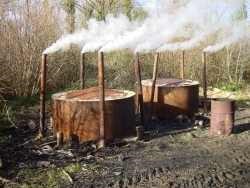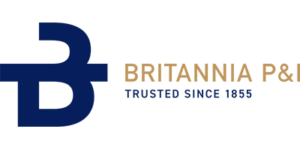This website uses cookies so that we can provide you with the best user experience possible. Cookie information is stored in your browser and performs functions such as recognising you when you return to our website and helping our team to understand which sections of the website you find most interesting and useful.
CARRIAGE OF CHARCOAL AND OTHER CARBON CARGO: UN NUMBERS 1361 & 1362 AND PACKING GROUPS
Published: 1 April 2016
The Club is aware of a number of recent fires caused by activated and non–activated charcoal and charcoal products. In many cases, the charcoal was not correctly declared or not declared as being dangerous.
Charcoal is a light black residue consisting of carbon and any remaining ash which is obtained by removing water and other volatile constituents. Charcoal is usually produced by slow pyrolysis which is the heating of wood or other substances in the absence of oxygen.
Activated charcoal has been heated by steam in a rotary kiln. The charcoal that comes out from the kiln is called unwashed activated charcoal. Unwashed activated charcoal has higher ash and iron content. Washing the activated charcoal with acid and purified water results in a lower ash and iron content.

United Nations data shows the main exporting countries of charcoal are Somalia, Indonesia, Burma and Paraguay.
Under the IMDG Code charcoal is classified as carbon and falls under 2 UN numbers and 3 packing groups:
UN number and proper shipping name:
| 1361 | CARBON animal or vegetable origin | Class 4.2 | Packing group II |
| 1361 | CARBON animal or vegetable origin | Class 4.2 | Packing group III |
| 1362 | CARBON, ACTIVATED | Class 4.2 | Packing group III |
EXEMPTED CARGO: SPECIAL PROVISIONS
Often, no formal declaration of the relevant IMDG category is made, but the informal description of the cargo which is used for booking and bill of lading purposes indicates that the cargo is charcoal, or contains charcoal. Common examples of this type of informal description include ‘shisha pipe’ charcoal and ‘quick self-lighting hookah’.
There is a special exemption provision contained in the IMDG Code (number 925) which can apply to this type of cargo and means that the IMDG Code will not apply. This exemption applies in circumstances where the consignment passes tests for self-heating substances as reflected in the Manual of Tests and Criteria (see 33.3.1.3.3).
This exempt product should be accompanied by a certificate from a laboratory, accredited by a competent authority, stating that the product to be loaded has been correctly sampled and tested by trained staff from that laboratory and that the sample has passed the test. This test certificate must accompany the booking in order for this exemption to apply. If the correct certificates are presented then the restrictions in the IMDG Code do not apply which means that no special packing or declaration is required and the cargo will not appear on the DG manifest.
The Club has had experience of shippers seeking to rely on this exemption but not presenting the proper certification. Without this certification, suspect cargo should be rejected with perhaps the expectation that the shipper present it again but this time together with a dangerous goods declaration (i.e. 1361 or 1362).
HEATING AND SPONTANEOUS IGNITION
A familiar problem which can lead to fires and subsequent claims is that carbon (UN number 1362 and 1361) is liable to heat up and ignite spontaneously in air if the material is not sufficiently heat treated and cooled down to ambient temperature before packing (as detailed in special provision 223).
There is no way of knowing by visual inspection alone whether the cargo has been properly heat treated and cooled. According to the IMDG Code, carbon (UN 1362 and 1361) can be stowed on or below deck, but must be protected from sources of heat and should be kept as cool as is reasonably practicable.
RECOMMENDATIONS
In order to reduce the risk of fires in carbon cargo, and to manage risk of improperly declared cargo, Members may wish to consider the following:
- An automated system which searches bookings for the word “charcoal” and other related products such as “fire lighters, carbon, barbeques” in order that the appropriate actions can be taken to ensure it has been correctly declared. If the cargo falls within the exemption under special provision 925, ensure that the correct certification accompanies the booking.
- Carrying all charcoal and charcoal-related products on deck. This would allow the crew to carry out visual and other checks to see if there are any signs of self heating in the cargo. Also, stowage on deck makes fire fighting much easier if fires do break out.
- Ensuring that the crew are aware of the potential issues which may arise from carrying charcoal, including the possibility that after the initial fire is extinguished, the cargo may re-ignite.

 English
English